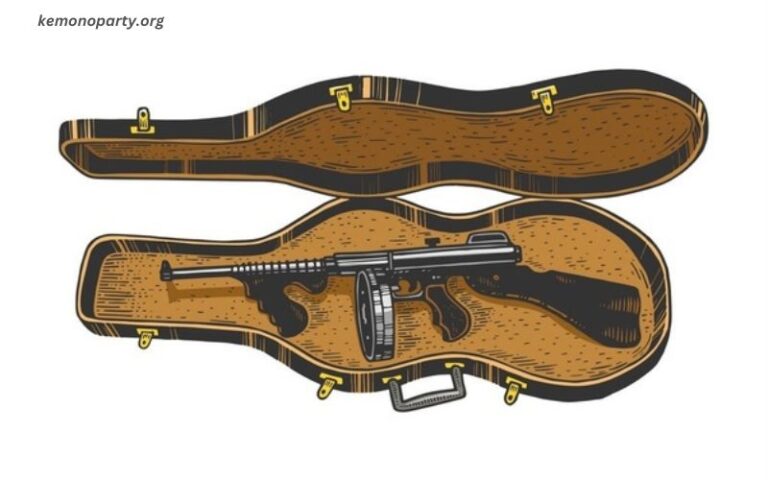Table of Contents
ToggleOrigins of the Mafia
The Mafia’s origins can be traced back to the 19th century in Sicily, Italy. Initially formed as a response to the oppressive rule and economic hardship faced by the local population, these groups provided protection and justice in a society where the state was either absent or corrupt. The term “Mafia” itself is believed to have derived from the Sicilian word “mafiusu,” which means bold or arrogant but eventually took on connotations of swagger and bravado associated with the criminal underworld.
The Rise of the Mafia Boss
To understand the role of a Mafia boss, one must first grasp the hierarchical structure of the organization. At the top is the boss, followed by the underboss, consigliere, caporegime (captains), and soldiers. The boss is the ultimate authority, making critical decisions, resolving disputes, and maintaining the organization’s cohesion.
Path to Power
Rising to the position of a Mafia boss is not a straightforward journey. It often involves years of service within the organization, demonstrating loyalty, intelligence, and ruthlessness. Many bosses start as soldiers, carrying out orders and proving their mettle. Those who exhibit leadership qualities and gain the trust of their superiors may be promoted to higher ranks.
For instance, John Gotti, one of the most infamous Mafia bosses in American history, started as a low-level enforcer in the Gambino crime family. His rise to power was marked by his ability to navigate the treacherous waters of Mafia politics, eventually orchestrating the assassination of his predecessor, Paul Castellano, to take control of the family.
The Role and Responsibilities of a Mafia Boss
Once at the top, a Mafia boss wields immense power and influence. Their primary responsibilities include overseeing the organization’s operations, making high-stakes decisions, and ensuring the loyalty of their subordinates.
Strategic Decision-Making
A Mafia boss must be a shrewd strategist, capable of making decisions that impact the entire organization. This includes determining which illegal activities to engage in, such as drug trafficking, extortion, or gambling. These decisions are often based on maximizing profits while minimizing risks.
Conflict Resolution
Conflict is inevitable within the Mafia, given the high-stakes nature of their operations. The boss acts as the ultimate arbiter, resolving disputes between members and maintaining order within the ranks. Failure to manage internal conflicts can lead to fragmentation and weaken the organization’s power.
Maintaining Loyalty and Secrecy
Loyalty and secrecy are the lifeblood of the Mafia. A boss must ensure that all members adhere to the code of silence, known as “omertà.” Betrayal is met with severe consequences, often resulting in death. The boss’s ability to inspire loyalty and fear is crucial to the organization’s survival.
The Power and Influence of the Mafia Boss
The influence of a Mafia boss extends beyond the criminal underworld. Their reach often infiltrates legitimate businesses, politics, and even law enforcement.
Business Ventures
Many Mafia bosses diversify their income streams by investing in legitimate businesses. These ventures serve as fronts for money laundering and provide a veneer of respectability. For example, Al Capone, the notorious Chicago mobster, owned several legitimate businesses, including laundromats and breweries.
Political Connections
Mafia bosses have historically cultivated relationships with politicians to protect their interests and gain influence. These connections can provide immunity from prosecution and access to valuable information. In return, politicians may receive financial support or favors.
Corruption of Law Enforcement
To operate with impunity, Mafia bosses often corrupt law enforcement officials. This can range from paying off local police to infiltrating higher levels of government. The infamous “Five Families” of New York, which include the Bonanno, Colombo, Gambino, Genovese, and Lucchese families, were known for their ability to corrupt law enforcement and avoid prosecution for years.
The Downfall of a Mafia Boss
While the life of a Mafia boss is one of power and luxury, it is also fraught with danger. The very nature of their operations makes them targets for rival gangs, law enforcement, and even betrayal from within their ranks.
Law Enforcement Crackdowns
The rise of organized crime in the 20th century led to increased efforts by law enforcement to dismantle these organizations. The formation of specialized task forces, such as the FBI’s Organized Crime Division, resulted in significant crackdowns on Mafia activities. High-profile prosecutions, like the conviction of John Gotti in 1992, marked the decline of many Mafia families.
Internal Betrayal
Betrayal from within the organization is a constant threat. Disgruntled members or those facing legal troubles may turn informant, providing law enforcement with valuable information. The testimony of “turncoat” mobsters has led to the conviction of numerous Mafia bosses.
The Legacy of the Mafia Boss
Despite the decline of traditional Mafia families, the legacy of the Mafia boss endures in popular culture and history.
Cultural Impact
Mafia bosses have left an indelible mark on popular culture, inspiring countless books, movies, and television shows. Characters like Vito Corleone from “The Godfather” and Tony Soprano from “The Sopranos” are based on real-life Mafia bosses, reflecting the public’s fascination with their world.
Historical Significance
The history of the Mafia and its bosses provides a lens through which to understand broader social, economic, and political dynamics. Their rise and fall reflect changes in law enforcement strategies, societal attitudes towards crime, and the complexities of power and corruption.
Conclusion
The life of a Mafia boss is a paradox of power and peril. These individuals navigate a world of secrecy, loyalty, and violence to command vast criminal empires. While their influence has waned in recent decades due to law enforcement efforts and internal strife, the legacy of the Mafia boss remains a compelling chapter in the history of organized crime. Through their stories, we gain insight into the dark underbelly of society and the enduring allure of power.


